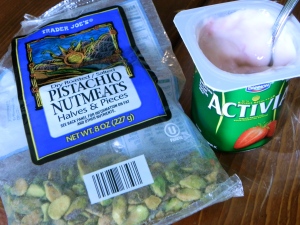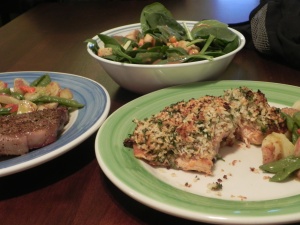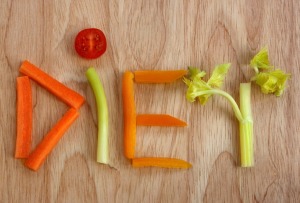
DIET: that dirty four-lettered word that is so ingrained in our national vocabulary that it’s mention is akin to discussing the weather.
“What’s the forecast for tomorrow?” you ask.
“A high of 1200 calories with a slight chance of deprivation.” How gloomy.
Dieting has become as American as baseball and apple pie, that is, as long as you make it a slice of sugar free, fat free pie.

Yet despite how often we talk about dieting, very few actually succeed in losing weight and keeping it off. So why do we persist? Are we all insane, as a popular quote would suggest?
“The definition of insanity is doing the same thing over and over again and expecting different results.”
Or maybe we’ve been bamboozled by an industry that profits off of our failures, an industry that designs a faulty product and then places the blame on the buyer? Today I challenge you all to embark on a different kind of diet: the anti-diet. Let go of all your complicated food rules and beliefs about “good” and “bad” foods and begin to trust your body to tell you what it wants and needs.
To provide you with some motivation, I’m counting down the top ten reasons to ditch dieting for good.
10. Dieting wrecks havoc on your metabolism.
Dieting slows the metabolism down tremendously, as the body enters what it assumes to be a period of famine. And while fat people who lose large amounts of weight may look similar to a naturally thin person, their bodies are actually behaving more like that of a starving person. In other words, a fat person who loses weight will not acquire the health characteristics of a naturally thin person. On average, the metabolism slows so that a formerly fat person burns about 24% fewer calories per square meter of their body’s surface area than a naturally thin person. By avoiding diets, you can ensure your metabolism is functioning at its optimal level.
9. Your body produces hormones that fight against weight change.
Your body has a natural set point for weight, largely determined by genetics, at which it feels most comfortable. Deviating much beyond this point triggers a cascade of hormones designed to resist further weight fluctuations. These hormones can stimulate or suppress appetite, decrease or increase metabolism, and encourage or discourage activity. Dieting interferes with the mechanisms that regulate set point and makes it difficult to respond to hormonal cues. Much like a broken gas gauge on a car, dieting makes it difficult to tell when the tank is full or running on empty.
8. Dieting can lead to many psychiatric problems.

Here’s a novel idea: your body, as adept as it is at carefully regulating all your bodily systems, cannot tell the difference between a diet and unintentional starvation. And starvation has been shown to cause a lot of psychological problems. In the classic Minnesota Starvation Study, healthy men were put on 1,600 calorie diets with the intention of losing 25% of their body weight. Over the course of the experiment, the men experienced what head researcher Dr. Ancel Keys came to call “semistarvation neurosis.” They became nervous, anxious, withdrawn and overly critical of their appearance and weight. Many exhibited signs of depression, losing their ambitions, interests, sense of humor, and desire for social interaction. They became obsessed with food and many developed odd food rituals. And to think this all happened on 1,600 calories per day. Many popular diets today prescribe much less!
7. Dieting wastes a lot of time and energy.
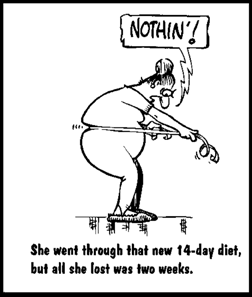
As noted by a participant in the Minnesota Starvation Study the act of restricting food “made food the most important thing in one’s life.” Whether your counting calories, weighing out just right portions, or dreaming about all the food you wish you could be eating, dieting can quickly become an all-consuming undertaking, often at the expense of other areas of your life. When we deny ourselves food we enjoy in favor of “healthy” foods we dislike, a lot of time gets spent fantasizing about that forbidden food.
6. Dieting robs a lot of the pleasure from eating and can make for more complicated social situations.
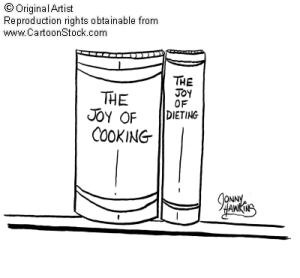 Despite what many popular diets lead you to believe, getting pleasure from food does not make you a hedonistic, weak-willed person. Eating can and should be a pleasurable experience. Think about digging into a big stack of fluffy pancakes on a lazy Sunday morning, eating a slice of cake on your Birthday, or clinking champagne glasses with friends and family on New Years Eve. Food is a part of many of social situations, and when your web of complex food rules keeps you sidelined from digging in with everyone else it can be an isolating experience.
Despite what many popular diets lead you to believe, getting pleasure from food does not make you a hedonistic, weak-willed person. Eating can and should be a pleasurable experience. Think about digging into a big stack of fluffy pancakes on a lazy Sunday morning, eating a slice of cake on your Birthday, or clinking champagne glasses with friends and family on New Years Eve. Food is a part of many of social situations, and when your web of complex food rules keeps you sidelined from digging in with everyone else it can be an isolating experience.
5. 95% of dieters regain the weight and then develop a higher weight set point.
Because of the numerous regulatory checks that your body employs, in the end, dieting is more synonymous with weight gain than weight loss. It slows metabolism, increases the body’s efficiency at getting calories from food, increases appetite, decreases activity levels, lowers your body temperature, breaks down muscle tissue, and increases fat storing enzymes. All these checks ensure you are on the fast track to gaining back any lost weight. And because our bodies are programmed to protect us from weight loss but aren’t too concerned with weight gain, they settle at a slightly higher set point than they were previously at. In other words, the same amount of calories you were once eating to maintain weight X are now how many you need to eat to maintain X+10lbs.
4. Dieting and weight cycling causes a lot of the problems that excess weight is blamed for like heart disease, high blood pressure, high cholesterol, and liver damage.

It’s a classic case of what came first, the chicken or the egg? Many people see a correlation between excess weight and disease and assume weight is the cause, when in reality the relationship isn’t so straightforward. What often underlies conditions like heart disease is the damage done to the body by losing and regaining the same weight over and over again, the same cycling that leads to higher set point weights.
3. You don’t need to diet to maintain your body’s healthy weight.
Too many people are under the impression that without constant vigilance the pounds will keep piling on, when in fact, this is far from the truth. A scientist at the University of Vermont, Ethan Sims, conducted an experiment that was the mirror image of the Minnesota Starvation Study. Instead of looking at the effects of calorie restriction, Sims put men on a calorie dense diet. In order increase their weight by 20% above their natural set point the men had to eat as much as 10,000 calories for up to six months time. Sims discovered that the amount of weight the men should have gained based on a simple calories in versus calories out equation was much more than they actually gained. Their bodies fought hard to maintain their natural set point, and at the conclusion of the study they returned to these weight without effort. Your body knows the weight it is healthiest at and will fight you to maintain that weight. Ironically, you have to diet to NOT maintain your healthy weight. Watch a documentary that puts participants through a similar weight gain experiment here.
2. Being thin does not necessarily make you healthier. Moderate activity and healthy, moderate food choices make you healthier.

Fit, active people are much healthier than sedentary individuals, regardless of weight. In fact, fit obese people are healthier than thin sedentary individuals and just as healthy and thin active individuals. When fat people exercise, they reap all the benefits even without an accompanying weight loss. In other words, losing weight will not make one healthy but exercising will. Several studies also indicate that fostering an active lifestyle increases self-confidence and acceptance while dieting often has the opposite effect. Read more.
1. Dieting is NOT about loving and respecting your body.
How many times have your heard someone say (or said yourself) “I’m trying to lose weight because I want to take care of myself?” While the intention is good, dieting is a misguided attempt at promoting health and well-being. Choosing a healthy, varied diet, staying active, and accepting your body in its present state sends a lot more powerful message if you ask me. You wouldn’t tell your partner or your best friend, “I’d love you more if only you were….(fill in the blanks).” So why do we repeatedly tell ourselves this message by trying to lose weight? Love and respect come from an understanding that I am a complete, whole person as I am.

For a great resource on the research behind these reasons check out Big Liberty’s blog. Or pick up a copy of the book Health at Every Size by Linda Bacon, The Obesity Myth by Paul Campos or Rethinking Thin by Gina Kolata.

































